For hundreds of years, whales were one of the riches of the ocean. Commercial whaling was viewed as an important and admirable occupation because the main industry it supported—supplying oil for light—was invaluable in a time before electricity or natural gas were introduced.

The first humans to learn the value of a whale probably made the discovery by accident. They most likely came across a beached whale or a whale carcass that had washed ashore. In an age when survival was part of daily life, finding a source of food and something that yielded material to make tools must have been an amazing event.
People learned how to use every part of the whale. They ate the whale’s blubber and meat. They wove its baleen into baskets or fashioned it into fishing lines or roofing material. They carved bones into tools and found uses for them as frames for structures. They used sinews as a binding material.
The practice of actively hunting whales goes back thousands of years to at least 3000 b.c. Archaeologists have found ancient tools in the Arctic, Japan, and Greenland that appear to be harpoons with ropes attached that probably were used for that purpose. Some of the first nations to be associated with whale hunting are Norway and Japan. Native people living in the Arctic—the Inuit and Inupiat—also have traditionally relied on whale hunting as a way to survive in the remote places that they inhabit.
この記事は Cobblestone American History Magazine for Kids の September 2017 版に掲載されています。
7 日間の Magzter GOLD 無料トライアルを開始して、何千もの厳選されたプレミアム ストーリー、9,000 以上の雑誌や新聞にアクセスしてください。
すでに購読者です ? サインイン
この記事は Cobblestone American History Magazine for Kids の September 2017 版に掲載されています。
7 日間の Magzter GOLD 無料トライアルを開始して、何千もの厳選されたプレミアム ストーリー、9,000 以上の雑誌や新聞にアクセスしてください。
すでに購読者です? サインイン
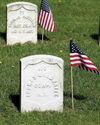
Putting the Pieces Together
Americans needed to begin to put the past behind them, come together, and plan for the future in the spring of 1865. But Abraham Lincoln, the man best equipped to lead them and who had hoped to restore the country as smoothly and peacefully as possible, had been assassinated.
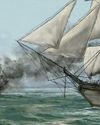
LAST SHOTS
The last Confederate forces in the Civil War didn’t surrender in the spring of 1865 or on a battlefield.
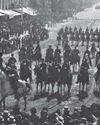
AND IN OTHER 1865 NEWS
A group of African Americans stop at the White House’s annual public reception on January 1, where they shake hands with President Abraham Lincoln.
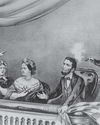
A Plot to Kill President the
For several months, actor John Wilkes Booth’s band of conspirators had plotted to capture President Abraham Lincoln and hold him hostage in exchange for Confederate prisoners.
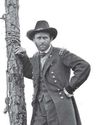
Let the Thing Be Pressed
In June 1864, Union Lieutenant General Ulysses S. Grant began a nearly 10-month campaign in Virginia.
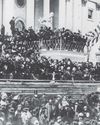
HEALING THE NATION
President Abraham Lincoln took the oath of office for the second time on March 4, 1865.

A Helping Hand
The spring season is hard in any agricultural society. Plants and animals are too small to eat.
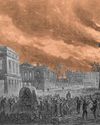
WAR SHERMAN-STYLE
As far as Union Major General William T. Sherman was concerned, the Civil War had gone on long enough.

PEACE TALKS
The fall of Fort Fisher made clear that the Confederacy’s days were numbered. Southerners were tired and hungry.
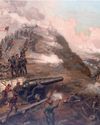
FORT FISHER'S FALL
Outnumbered Confederate soldiers inside Fort Fisher were unable to withstand the approach of Union troops by land and the constant Union naval bombardment from the sea.